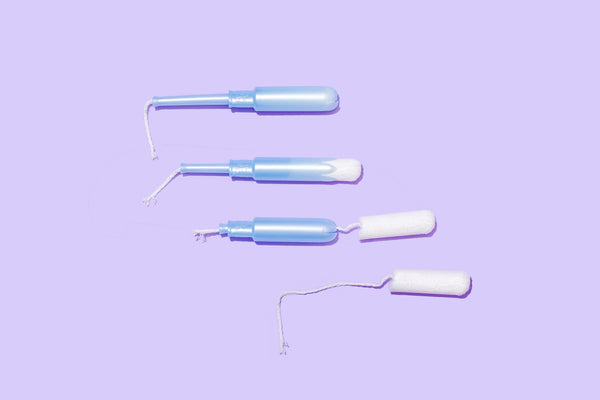Myth Busting: The Truth About Tampons vs. Organic Tampons

Here’s the truth: Brands selling organic tampons or “all natural” products employ scare tactics and promulgate baseless rumors in their marketing campaigns.
They imply (if not outright say) that standard tampons are unregulated, contaminated with harmful chemicals like dioxins, are less effective, and unsafe, potentially causing hormonal changes and dangerous conditions like Toxic Shock Syndrome (TSS). Other insane conspiracies include that tampons contain asbestos to make you bleed more/need more tampons. That’s certifiable crazy talk.
Suffice it to say, these rumors are false. They are not supported by any scientific evidence. The truth is easy to find if you’re willing to do the research.
Highly regulated
Because menstrual products are considered a class II medical device by the FDA, they are highly regulated and frequently tested to make sure they are safe for use.
No harmful chemicals are added
Today’s menstrual products are naturally free of harmful chemicals and contaminants including asbestos, chlorine and dioxins. (FYI: Tampons with fragrances should be avoided because they can cause irritation.)
Not your mama’s tampons
To repeat: There are no dioxins added to conventional tampons. Back in the ’70s and ’80s, menstrual products were made with a combination of cotton and rayon and then bleached with chlorine, which could result in dioxins entering the body. The modern process for treating Rayon is chlorine-free and dioxin free. (Note: Dioxin is found throughout the environment in trace amounts. Approximately 90% of human exposure to dioxin is through food.)
More absorbent
Why use Rayon? Tampons use rayon because it is significantly more absorbent than cotton. Rayon is not a synthetic product: it’s wood pulp from birch trees and is the same absorbent material gynos use in pap smears.
Just as safe for you
As far as the risk for toxic shock syndrome (TSS), natural fibers aren’t any safer than synthetic fibers. There is no medical or scientific evidence to suggest that organic tampons or all-natural tampons are better than leading brand products or that organic tampons make people safer from developing TSS.
Some companies tout that their products don’t contain “synthetic superabsorbents,” yet these materials aren’t used in ANY tampons in the US. (Thanks FDA and CDC!)
Always pick the right product
It’s crucial to know that TSS can affect anyone regardless of the kind of tampon you use, what matters is the absorbency level of your chosen product. To lower your chances of developing TSS, experts recommend using tampons that are the appropriate level of absorbency to avoid bacteria build up, and changing your tampon every 4-8 hours. If you sleep more than 8 hours, consider wearing a pad at night.
The right information can save your life. The wrong information is a waste of time and, often, money. If you are someone super duper concerned about toxins entering your body, here are some products you might consider eliminating from your life: sugar and booze. (No, thank you!)
0 comments